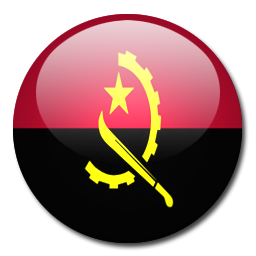![]() Public Holidays in Guinea-Bissau, and their national day celebrated on September 24th, marks the country’s independence from Portugal in 1973. This day is a public holiday and holds significant importance in the nation’s history, commemorating the struggle and achievements of the Guinea-Bissau Liberation Movement. Here are some key details and aspects of the celebration
Public Holidays in Guinea-Bissau, and their national day celebrated on September 24th, marks the country’s independence from Portugal in 1973. This day is a public holiday and holds significant importance in the nation’s history, commemorating the struggle and achievements of the Guinea-Bissau Liberation Movement. Here are some key details and aspects of the celebration
Public Holidays in Guinea-Bissau
Independence: Guinea-Bissau declared its independence from Portugal on September 24, 1973. Likewise this following a long liberation struggle which was led by the African Party for the Independence of Guinea and Cape Verde (PAIGC).
Recognition: Note that the independence was declared in 1973. This was however not officially recognized by Portugal until September 10, 1974, after the Carnation Revolution in Portugal.
Celebrations and Observances:
Official Ceremonies: Government officials, including the President. They will normally deliver speeches highlighting the significance of independence. Likewise they will also be paying tribute to the freedom fighters and their national heroes.
Parades: Much like other countries, military and civilian parades are held. Likewise they will be showcasing the country’s cultural diversity as well as their military strength.
Cultural Events: Various cultural activities, such as traditional music and dance performances, are organized to celebrate the rich heritage of Guinea-Bissau.
Community Gatherings: Families and communities come together to celebrate with feasts, traditional foods, and communal activities.
Educational Programs: Schools and educational institutions often organize programs to educate students about the history and importance of independence.
Other Public Holidays in Guinea-Bissau:
In addition to National Day, Guinea-Bissau observes several other public holidays, including:
- New Year’s Day (January 1) – Celebrating internationally as the start of the new year.
- International Workers’ Day (May 1) – Honoring workers and labor movements.
- Eid al-Fitr – A Muslim holiday marking the end of Ramadan (date varies according to the lunar calendar).
- Eid al-Adha – Another significant Muslim holiday commemorating the willingness of Ibrahim (Abraham) to sacrifice his son (date varies according to the lunar calendar).
- Christmas Day (December 25) – Celebrating the birth of Jesus Christ.
Significance:
The National Day of Guinea-Bissau is a reminder of the country’s journey towards self-determination and the sacrifices made by its people. It is a day of national pride, reflection, and celebration, highlighting the unity and resilience of the nation.
Lastly also see the articles that I wrote on the National Days in April as well as the National Days in May.
![]()

